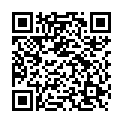|
|
|
| Module code: MAB_19_IP_5.07.MPE |
|
|
2PA+1S (3 hours per week) |
|
3 |
| Semester: 5 |
| Mandatory course: yes |
Language of instruction:
German/English |
Assessment:
Assessment methods:
Project documentation in German
Abstract in Englisch
Presentation in English 15 min.
[updated 05.10.2020]
|
MAB_19_IP_5.07.MPE (P241-0264, P241-0265) Mechanical and Process Engineering, Bachelor, ASPO 01.10.2019
, semester 5, mandatory course, Specialization Industrial Production
|
45 class hours (= 33.75 clock hours) over a 15-week period.
The total student study time is 90 hours (equivalent to 3 ECTS credits).
There are therefore 56.25 hours available for class preparation and follow-up work and exam preparation.
|
Recommended prerequisites (modules):
MAB_19_A_1.05.BEM Business English for Mechanical Engineers
MAB_19_A_2.01.CAD CAD 3D Modeling
MAB_19_A_2.02.TFL Manufacturing Process Technology (with Lab Course)
MAB_19_A_2.06.TEM Technical English for Mechanical Engineers and Professional Presentations
MAB_19_A_3.03.AEJ Applying for an Engineering Job
[updated 18.02.2020]
|
Recommended as prerequisite for:
|
Module coordinator:
Prof. Dr. Jürgen Griebsch |
Lecturer:
Sebastian Barth, M.A.
Professor/innen des Studiengangs
[updated 18.02.2020]
|
Learning outcomes:
After successfully completing this course, students will be able to solve a task given to them using analytical procedures and thereby expand their problem-solving competence.
Student creativity will be encouraged.
Students will be able to work in a team in order to complete a task successfully.
They will be able to manage time and resources (project management).
They will be able to use communication techniques to ensure successful communication in projects.
Students will be familiar with various reading strategies and will be able to work independently on a topic using English technical texts and videos.
They will improve and deepen the presentation knowledge and skills acquired in the _Technical English for Mechanical Engineers and Professional Presentations_ modules and be able to apply them to a final presentation of their project results in English. The main focus will be an academically educated audience, which, however, is not exclusively composed of experts on the respective topic.
Students will also be able to write an English abstract on the documentation to be prepared in German.
[updated 05.10.2020]
|
Module content:
- Production-oriented design, planning and implementation of a task (example product from an industrial application)
- Documentation and presentation of results in English
A team of students, supported by targeted coaching, will work on an interdisciplinary task and compile the results in the form of a technical documentation. They will also present their results. The team itself will be responsible for delegating tasks and organization.
They will prepare a design and cost report based on the "Formula Student" approach.
The will defend/present their results in a presentation by a specific date.
The task will be supplemented by a "real case": After evaluating the submitted cost report, students will receive a real-case scenario. In this scenario, they must make suggestions for a more cost-efficient solution for a selected component of the product.
The content will be closely related to the technical project. Content:
- Strategies for acquiring the technical vocabulary relevant to the respective projects
- Text work with technical texts and videos relevant to the respective projects
- Repetition of the structure and language of English presentations in order to present project results
- Describing diagrams, tables, images, numbers, cause and effect correlations, and trends
- Presentation slides
- Dealing with questions and body language
- Preparing and practicing English presentations in order to present project results
- Introduction to abstracts (structure, style, idioms, writing strategies)
- Writing abstracts
[updated 05.10.2020]
|
Teaching methods/Media:
Teaching methods/Media:
PJ=Project work _ Workshop character
The learning goals will be achieved through integrated training of the four basic skills (listening comprehension, reading comprehension, speaking and writing) supported by the use of multimedia.
Group work and working in pairs, as well as peer review will play an important role. During the workshop-like phases, students will have the opportunity to practice their presentations and receive appropriate feedback.
Target group-specific teaching/learning materials (print, audio, video), as well as multimedia CALL and e&mLearning materials will be used.
[updated 05.10.2020]
|
Recommended or required reading:
König, Klocke; "Fertigungsverfahren 1-5: Fertigungsverfahren 1. Drehen, Fräsen, Bohren: Drehen, Frasen, Bohren: Bd 1 (Gebundene Ausgabe)"; ISBN: 978-3540234586
Fritz, Schulze; "Fertigungstechnik (VDI)"; ISBN: 978-3540766957
Rau, Koether; "Fertigungstechnik für Wirtschaftsingenieure (Broschiert)"; ISBN: 978-3446412743
Westkämper, Engelbert / Warnecke, Hans-Jürgen; "Einführung in die Fertigungstechnik"; ISBN: 978-3-8351-0110-4
Ralf Berning; "Grundlagen der Produktion: Produktionsplanung und Beschaffungsmanagement (Taschenbuch)"; ISBN: 978-3464495131
Christine Sick, unter Mitarbeit von Miriam Lange: TechnoPlus Englisch 2.0. Ein multimediales Sprachlernprogramm für Technisches Englisch und Business English. EUROKEY.
Christine Sick, unter Mitarbeit von Lisa Rauhoff und Miriam Wedig (seit 2016): Online Extensions zu TechnoPlus Englisch, EUROKEY.
Christine Sick: TechnoPlus Englisch VocabApp. EUROKEY.
M. Ibbotson: Professional English in Use: Engineering. Technical English for Professionals. CUP.
C. Sowton: 50 Steps to Improving Your Academic Writing. Garnet Education.
B. Rosenberg: Spring into Technical Writing for Engineers and Scientists. Addison-Wesley.
D. Beer, D. McMurrey: A Guide to Writing as an Engineer. Wiley.
K. Budinsky: Engineers_ Guide to Technical Writing. ASM International.
[updated 05.10.2020]
|

